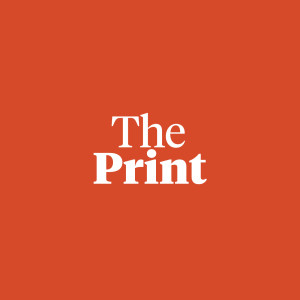

Securing America with Frank Gaffney Podcast
Amb. Yoram Ettinger, Ken Jenkins, Richard Holm, Gordon Chang
2011-08-22
Former Israeli Ambassador Yoram Ettinger joins Secure Freedom Radio to discuss the upheavals in the Middle East, namely in Libya with the recent reports of Qaddaffi’s imminent fall. While some praise the so-called “Facebook revolutions,” Amb. Ettinger explains why the tribal, ethnic and religious fragmentation of the region will not allow for a march to Democracy. The rise of the rebel forces in Libya may be another example of the ascendancy of radical elements due to America’s eroding posture. ...
Former Israeli Ambassador Yoram Ettinger joins Secure Freedom Radio to discuss the upheavals in the Middle East, namely in Libya with the recent reports of Qaddaffi’s imminent fall. While some praise the so-called “Facebook revolutions,” Amb. Ettinger explains why the tribal, ethnic and religious fragmentation of the region will not allow for a march to Democracy. The rise of the rebel forces in Libya may be another example of the ascendancy of radical elements due to America’s eroding posture. A consultant to Israel’s Cabinet, Ettinger explains why the elections in Egypt will be very telling for the future role of the Muslim Brotherhood, and also how Sinai is rapidly becoming a “mini Afghanistan” with a surge of terrorist attacks, making it apparent that the U.S. and Israel secure victory in the region, not coexistence or cease fire agreements.
Ken Jenkins, Deputy Special Agent in Charge, Criminal Investigation Division, U.S. Secret Service, heads the counterfeiting branch, a task that poses new challenges in the digital age. Jenkins breaks down the distinctions between foreign and domestic counterfeiting and and tells of the work he is doing to combat it. The agency was first established for this purpose, has since seized over $129 million in fake counterfeit bills through “Project Colombia,” and also works against cyber crime and identity theft. Counterfeiting is most prevalent in Colombia and Peru, with the Peruvian note appearing most in the U.S. Agent Jenkins, a 20-year veteran of the Secret Service, also explains how investigations are underway into possible counterfeiting originating from Hezbollah and North Korea.
Then, Richard L. Holm, former station chief for the CIA, joins Frank to discuss his new book, The Craft We Chose: My Life in the CIA, an account of his work within the agency beginning in 1961, at the height of the Cold War. Holm explains why intelligence gathering is infinitely more difficult today than in the past. “You simply don’t meet these guys at a cocktail party,” says Holm, about our enemies in the War of Terror, as Jihadists transcend national borders. The recipient of the Distinguished Intelligence Medal, the highest award the agency can bestow, Holm also details his courageous story working in Laos and the Congo, where a plane crash left him stranded for 10 days. Suffering from severe burns covering 30 percent of his body, only a balm made from snake fat from the Natives saved his life. His remarkable story magnifies the importance of human intelligence in warfare, and is demonstrable of the valor of our clandestine services.
Finally, after the Mr. Biden goes to China excursion, Gordon Chang, of Forbes, recaps the venture in which the Vice President made his best attempt at placating the Chinese. Chang explains why his efforts only “made the Dragon’s ego bigger,” in a culture that respects strength, not weakness. Our resident expert on all things Asia discusses how the Communist structure prevents any transfer in leadership from impacting the government, saying “you could put the Pope in as General Secretary of the Communist Party” and nothing would change. He also notes that America is encouraging all the wrong tendencies in China by not selling F-16s to Taiwan, and predicts more protests will spring up in the country.
View more
Comments (3)
More Episodes
All Episodes>>You may also like
Creat Yourt Podcast In Minutes
- Full-featured podcast site
- Unlimited storage and bandwidth
- Comprehensive podcast stats
- Distribute to Apple Podcasts, Spotify, and more
- Make money with your podcast
It is Free



